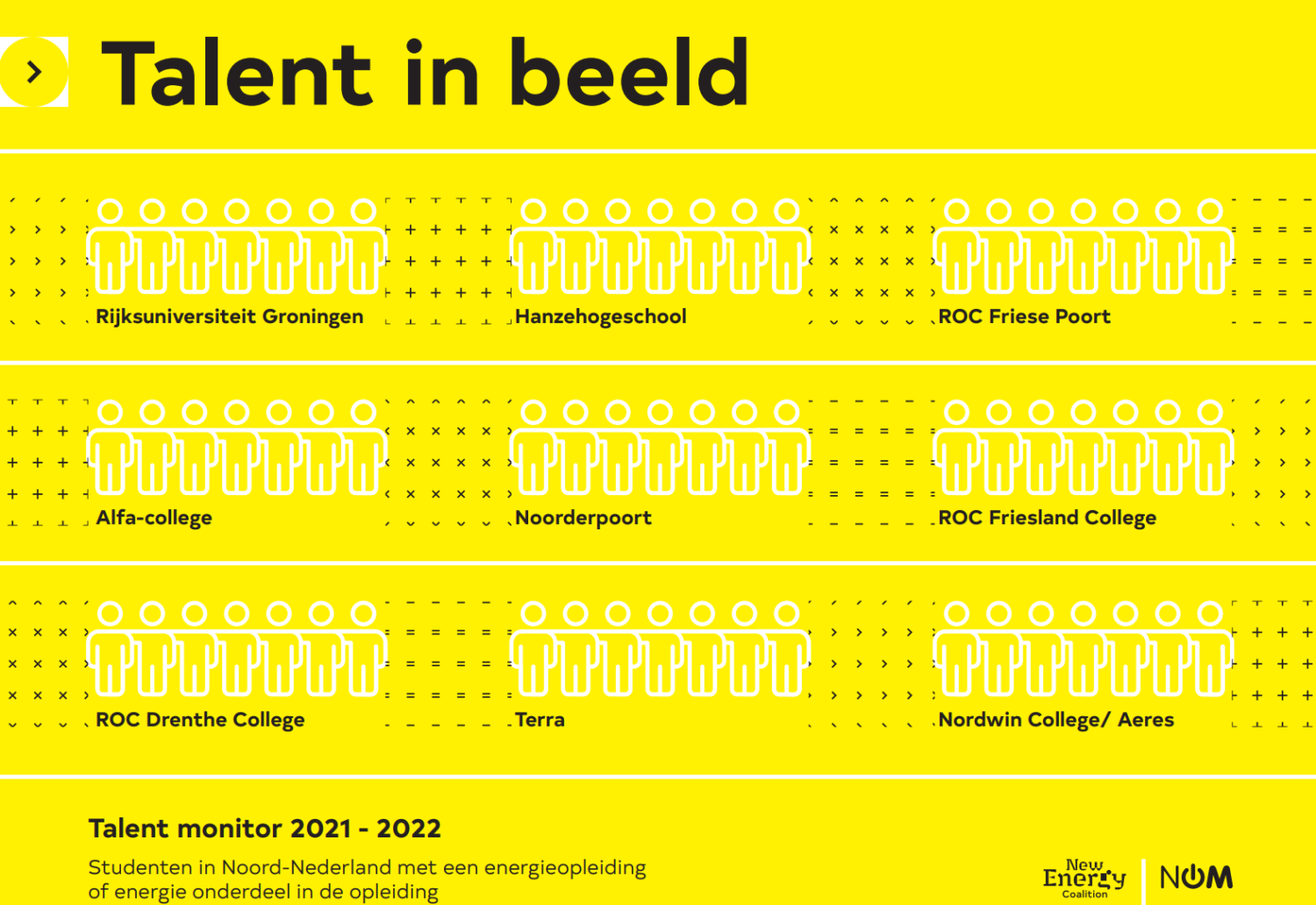An update of 'Talent in Beeld', a monitor providing insight into the number of energy-focused students in the Northern Netherlands, was recently published with the 2nd edition. The overview was compiled by NOM and New Energy Coalition and is an inventory of the 'energy students' who are named as such at mbo, hbo and wo in the Northern Netherlands. It gives a useful picture of the available potential for the energy-related labor market and thus supports the business climate for energy-related activity in the region. The doubling of the number of hbo students focusing on energy in their studies is striking.
The Northern Netherlands is the energy region of the Netherlands. Production of Groningen gas has long since given way to knowledge and expertise on hydrogen, renewable energy and everything around the energy transition to the future. Dina Boonstra, director NOM: "Energy-related studies are crucial for the development of a sustainable future. The many energy students in the Northern Netherlands contribute to this. Gaining knowledge and thinking in terms of opportunities support a stable energy supply for generations to come.
Marieke Abbink, CEO of New Energy Coalition, put Human Capital on the map for her organization: 'We need to prepare young people, especially in this region, for the energy jobs that await them. Already, work is stalling for lack of people with the right education and background. By the way, there are also great opportunities for people who are already working, but want to retrain or retrain to work in the energy sector.'
Biggest growth in college
In the 2021/2022 survey period, the number of students interested in energy-related studies was found to have grown by about 5,000 from 17,383 to 24,256, a 29% increase from the previous poll (2019/2020 academic year). The largest growth was among college students: it doubled.
We also see an increase in the number of energy bachelors, both in studies and number of participants, at both Hanze University of Applied Sciences Groningen and the University of Groningen. At Hanze University Groningen, 12,308 students took an energy route (was 6,467) mainly in studies such as Law International Business and ICT and at the University of Groningen the number increased from 2,875 to 3,355, mainly in Physics and Spacial Planning & Design. The number of Minors remained almost the same and the number of Masters saw a slight increase.
Students desperately needed
By working together smartly, doing smart things, inventing smart things and putting them into practice, we are on our way to a sustainable and climate-neutral energy system. The Northern Netherlands is doing all this on a unique scale, with large and small companies, governments and educational institutions all doing their part in formulating answers.
The energy transition is so wide-ranging, the challenges so diverse, that only by tackling it from all sides can answers be found. That is exactly what the Northern Netherlands is doing. The ecosystem that is already so active is continuously growing in strength. And student knowledge is desperately needed for that. That is also why the Talent in Focus monitor is valuable: providing insight into the available potential for energy-related issues, with which the necessary steps for energy transition can be taken.

